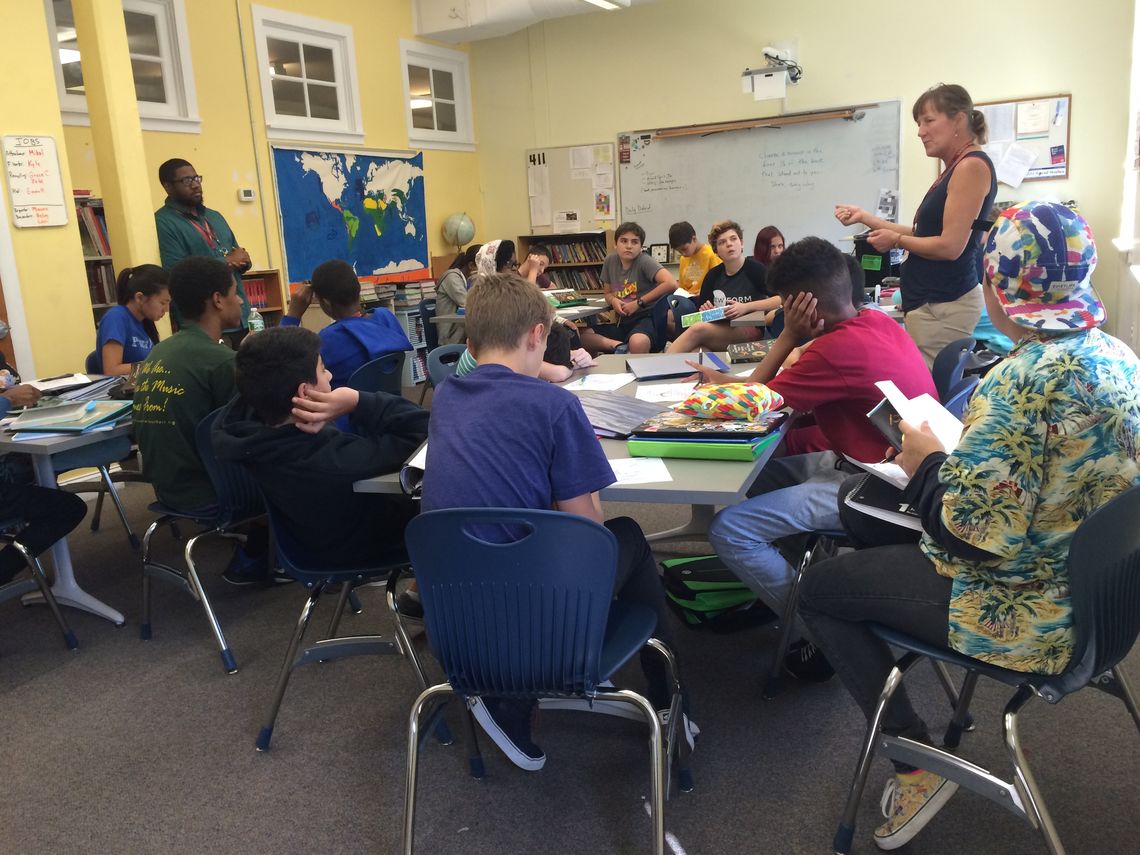- Home /
- News /
- 37th Annual Mold Symposium /
- New 8th Grade Language Arts Curriculum
Sep 18, 2015
Friday
New 8th Grade Language Arts Curriculum
Dean of Middle School Kiri Harris and Media & Technology Specialist Chris Rogers are designing and co-teaching a new course for eighth grade Language Arts, constructed around the following questions posed by W.E.B. duBois:
What does integrity do in the face of adversity / oppression?
What does honesty do in the face of lies / deception?
What does decency do in the face of insult?
How does virtue meet brute force?
Students will read a range of fiction, poetry, and graphic novels. While most titles will be new the curriculum, they will still connect to what the 8th graders learn in Marty Foley’s Social Studies class. Discussion and participation will be a huge element of the course. “We will give them the tools to generate their own work and ask their own questions,” says Chris. “If they leave with more questions, that’s a good sign.”
This week, students discussed Sherman Alexie's "The Absolutely True Diary of a Part Time Indian" which is based on his own life. In Thursday's class, they used information they retained from reading independently to draw a portrait of Arnold Spirit, Jr.
Facilitated by Kiri and Chris, students then generated the discussion on what they had read, quickly gravitating to the examples of racism in the book. When asked by Kiri why the author would include those parts, suggestions included that he was showing something real, trying to create a reaction from the reader, or giving a greater context to his experience. The 8th graders shared how their own backgrounds made them relate to the book and how it impacted the way they read it. One student shared that it was painful for her to read about characters telling a racist joke. Another said that he was not uncomfortable because he often heard the language used in the book, while another said he didn't know what the words meant.
"This is what this class is," Kiri shared with the group. "We want to go where the important discussions are."
Chris agreed as he highlighted the important of context and understanding, writing the two words on the board for the students to reflect on during the discussion. He added, "these are conversations that have been happening for many years. We are not going to come to a solution today."


